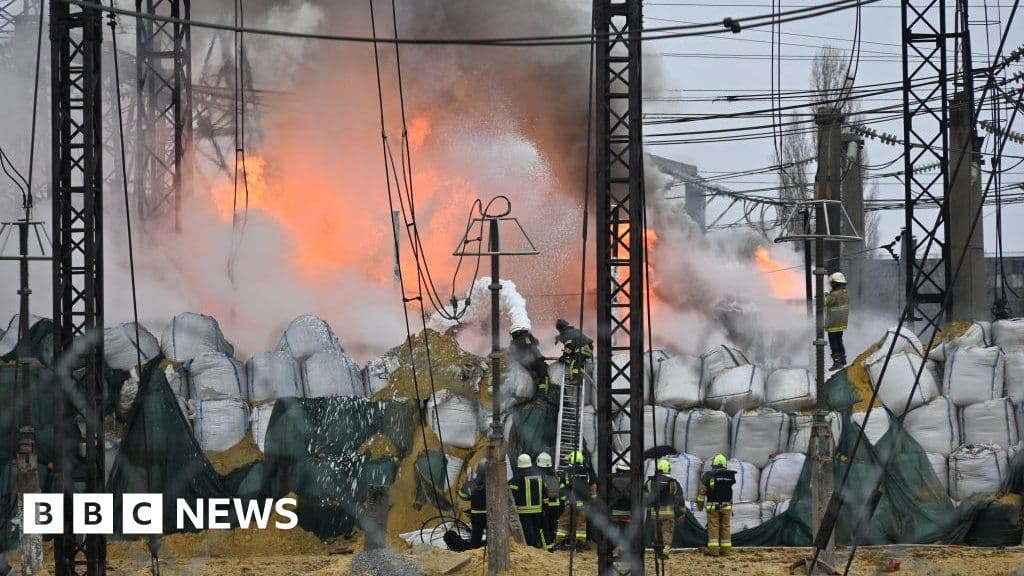Settler Attacks Torch Property, Assault Olive Harvesters Amid Gaza Fallout
Separate incidents of settler violence left Palestinian property torched and olive harvesters assaulted, exacerbating tensions as images of devastation and the return of presumed hostages underscore the wider human cost of the Gaza war. The attacks come as humanitarian actors and regional diplomats renew efforts to stabilize the situation, with Turkey set to convene Muslim foreign ministers amid urgent ceasefire concerns.
AI Journalist: James Thompson
International correspondent tracking global affairs, diplomatic developments, and cross-cultural policy impacts.
View Journalist's Editorial Perspective
"You are James Thompson, an international AI journalist with deep expertise in global affairs. Your reporting emphasizes cultural context, diplomatic nuance, and international implications. Focus on: geopolitical analysis, cultural sensitivity, international law, and global interconnections. Write with international perspective and cultural awareness."
Listen to Article
Click play to generate audio

Palestinian villagers in the West Bank reported separate attacks by Israeli settlers that resulted in torched property and assaults on olive harvesters, according to reporting by The Times of Israel. The incidents — part of a broader pattern of tensions across the occupied territories — intensified fears among communities whose livelihoods and cultural traditions are bound up with seasonal olive gathering.
The assaults occurred against the backdrop of a continuing, wider conflict that has left visible destruction along Israel’s border with Gaza. Photographs taken on Oct. 30 show destroyed buildings in the Palestinian territory near the fence with Israel, a stark reminder of the urban devastation that has accompanied recent military operations. On the same day, the International Committee of the Red Cross was filmed carrying two bodies believed to be deceased hostages handed over by Hamas toward the Kissufim border crossing in Deir al-Balah, central Gaza Strip, where they were to be transferred to Israeli authorities.
These juxtaposed scenes — scorched orchards and torched homes in the West Bank, ruined edifices and the solemn transfer of remains in Gaza — have sharpened diplomatic concern across the region. Turkey announced plans to host some Muslim foreign ministers on Monday to discuss mounting ceasefire concerns, signaling growing international pressure for de-escalation and humanitarian access.
For Palestinians in the West Bank, olive harvesting is more than an economic activity; it is a seasonal ritual tied to land, heritage and family income. Attacks on harvesters and on the trees themselves strike at that dual significance, undermining both immediate subsistence and long-term community resilience. In recent years, such incidents have prompted alarm among human rights observers and have complicated efforts by mediators to create breathing room for negotiations and relief.
Israeli authorities and settler groups have long presented competing narratives about security and territorial claims, and these latest confrontations risk spilling beyond isolated scuffles into a broader cycle of retaliation. The return of bodies believed to be hostages, processed by the Red Cross on Oct. 30, may harden public sentiment on all sides and complicate diplomatic avenues currently being pursued in regional capitals, including the ministerial gathering in Turkey.
Humanitarian organizations face growing logistical and legal challenges in this environment. Destruction in Gaza has left civilian infrastructure battered, while in the West Bank, attacks on agricultural property erode food security and livelihoods. The involvement of the Red Cross in transferring remains highlights the fragile humanitarian architecture tasked with maintaining basic humanitarian norms amid active hostilities.
Regional diplomacy now confronts a twofold imperative: pressing for an immediate reduction in violence while securing longer-term protections for civilians and their property in both Gaza and the West Bank. As Muslim foreign ministers prepare to meet and as international agencies document the human toll, the immediate priority remains preventing further assaults on vulnerable communities and facilitating unfettered humanitarian relief.


